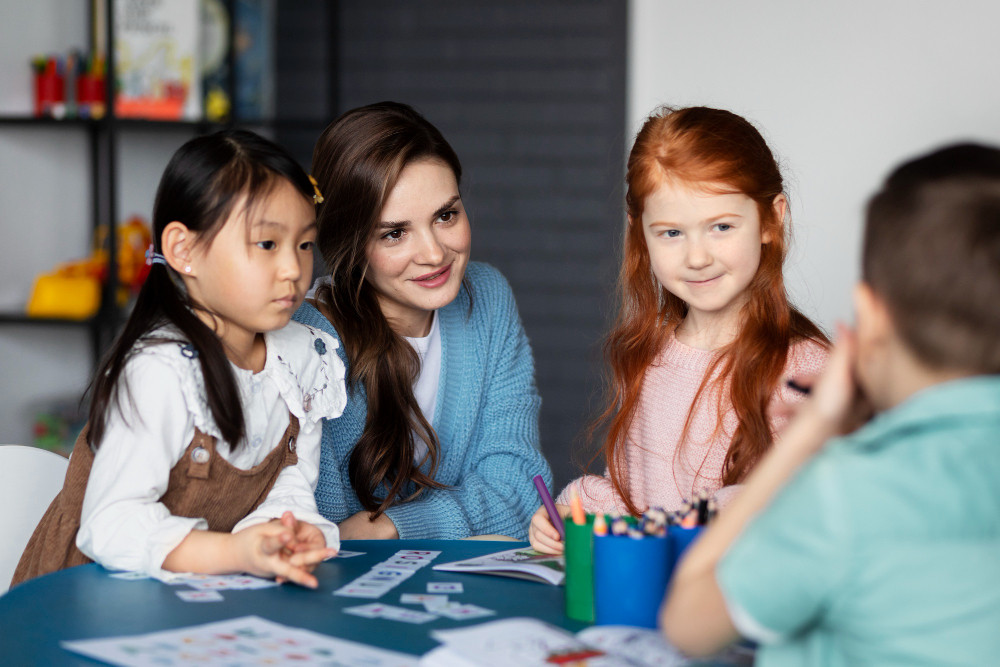
Parents’ Important Role in Their Children’s Education
Education isn’t just about school, homework, and grades. It’s a lifelong journey that starts way before a child ever steps into a classroom. And guess who the first teachers are? Parents! The importance of parents’ involvement in education can’t be overstated. When parents are actively engaged, kids do better academically, socially, and emotionally. They develop a stronger sense of confidence, motivation, and curiosity about the world around them.
But let’s be honest; life is busy. Between work, errands, and a million other responsibilities, it’s easy to assume that schools will handle the teaching part. While teachers do play a massive role, the parents' role in child education goes far beyond just making sure homework gets done. It’s about creating an environment that nurtures learning, offering emotional support, and being a guiding force throughout their child’s education.
So, how can parents really make a difference? Let’s break it down.
Before kids ever open a textbook, they’re already learning from their parents. The way you talk to them, the things you expose them to, and even your own attitude toward learning all shape how they see education. Simple activities like reading bedtime stories, playing number games, or asking thought-provoking questions help develop critical thinking skills from an early age.
Even casual conversations make a difference. Asking your child about their day, encouraging them to express their thoughts, and introducing new words naturally builds communication skills. And when they see you getting excited about learning something new, whether it’s a fun fact, a new hobby, or a book you’re reading, they’ll pick up that same enthusiasm.
Education isn’t just about memorizing facts; it’s also about personal growth. Kids go through a lot: peer pressure, self-doubt, and school stress. This is where the role of parents in a student's life really shines. Being a strong support system helps kids navigate these challenges with confidence.
Listening is key. If your child knows they can come to you with their struggles, without fear of being judged, they’ll be more open about their feelings. Encouraging open discussions about school, friendships, and their emotions teaches them resilience and problem-solving skills.
And don’t forget to celebrate the little wins! Whether it’s finishing a tough assignment or doing well on a project, recognizing their efforts (not just the results) boosts confidence and motivation.
Teachers play a big role in education, but they can’t do it alone. A strong connection between parents and teachers makes a world of difference. Attending parent-teacher meetings, checking in on progress, and staying informed about what’s happening in school help parents understand how to support their kids at home.
Talking to teachers gives insight into your child’s strengths and challenges. Maybe they struggle with math but excel in creative writing. Knowing this lets you tailor your support, whether it’s practicing multiplication together or encouraging them to write short stories at home.
Also, showing up for school events, volunteering, or just showing interest in their school life tells your child, “Hey, your education is important to me.” And when kids see their parents involved, they’re naturally more motivated to do well.
Let’s be real; getting kids to sit down and study isn’t always easy. But good study habits don’t just happen; they’re built over time with a little guidance from parents.
Here’s how you can help:
● Create a Routine: A set study time each day builds consistency and discipline.
● Limit Distractions: A quiet, clutter-free study space helps with focus.
● Encourage Breaks: Short breaks keep their brain fresh and prevent burnout.
● Teach Time Management: Help them plan out their workload so they don’t leave everything until the last minute.
● Be an Example: If they see you reading, learning, or working on something with focus, they’ll mirror that behavior.
These small habits go a long way in shaping a student who’s responsible, organized, and ready to tackle challenges head-on.
School teaches kids math, science, and literature; but what about real-world skills? The parents' role in the education of their child isn’t just about academics. It’s also about preparing them for life outside the classroom.
Problem-solving, decision-making, financial literacy, and emotional intelligence are just as important as book knowledge. Letting kids make small choices, like managing their pocket money or planning how to complete a project, helps them develop independence. Discussing current events, ethical dilemmas, or even simple household decisions teaches them to think critically.
And let’s not forget social skills! Teaching kids how to communicate effectively, respect others, and work as a team gives them an advantage not just in school but in life.
Kids watch and absorb everything their parents do. If you show curiosity, resilience, and a love for learning, they will too. That’s why the importance of parent involvement in education isn’t just about checking homework; it’s about setting an example.
Are you picking up a new skill? Learning a new language? Reading an interesting book? Share it with your child! Show them that learning never stops, no matter how old you are. Even discussing challenges you’ve faced and how you overcame them teaches them valuable lessons about persistence and growth.
The role of parents in students' lives is one of the biggest influences on their academic and personal success. From creating a learning-friendly environment at home to providing emotional support, working with teachers, and teaching essential life skills, parents play a key part in shaping their child’s future.
Education isn’t just something that happens in a classroom; it’s a lifelong journey. And when parents are actively involved, kids don’t just perform better; they develop a love for learning that lasts a lifetime.






